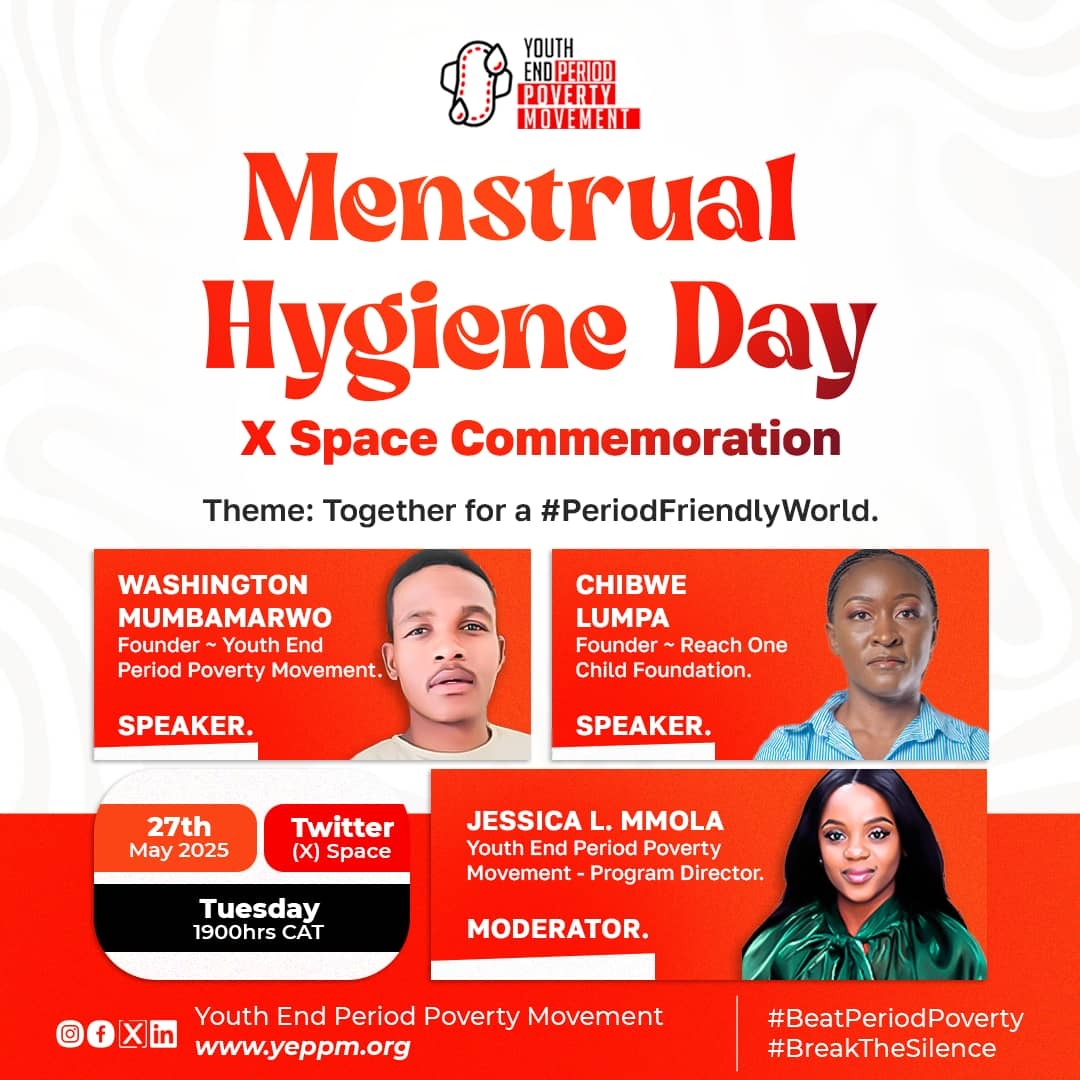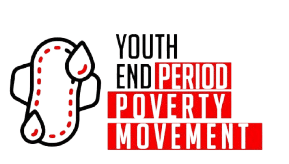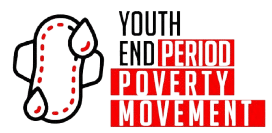
As the global community observes Menstrual Hygiene Day 2025, the Youth End Period Poverty Movement (YEPPM) is spearheading critical conversations to advance menstrual equity, sexual and reproductive health (SRH), and inclusive advocacy across Africa. Marking this important occasion, YEPPM will host an X Space discussion on 27 May 2025 at 1900hrs CAT, featuring Chibwe Lumpa, Founder of Zambia’s Reach One Child Foundation, and Washington Mumbamarwo, YEPPM Executive Director. This dialogue will explore the intersection of menstrual equity, education access, and youth empowerment, with a particular focus on marginalized communities often left behind in these crucial discussions.
The timing of this engagement could not be more significant. Across the continent, persistent stigma, period poverty, and inadequate SRHR services continue to undermine the health, dignity, and potential of millions of young people. YEPPM’s advocacy highlights three critical pathways for change: comprehensive policy reform, community-centered education, and meaningful male engagement as part of holistic solutions to break systemic barriers.
Demonstrating its commitment to ending period poverty, advancing sexual and reproductive health (SRH), and promoting menstrual equity, YEPPM will further contribute to the Hivos Southern Africa Regional SRHR Fund Webinar on 28 May 2025, under the theme “Combating Toxic Masculinity: Male Advocacy for Menstrual Equity in East and Southern Africa.” Represented by Executive Director Washington Mumbamarwo alongside experts and changemakers from Uganda, Kenya, Zimbabwe, and South Africa, this session will delve into strategies for engaging men and boys as proactive allies in challenging harmful gender norms and advancing inclusive menstrual health solutions.
These dual initiatives underscore YEPPM’s foundational belief that menstrual equity is not just a health issue, but a prerequisite for achieving gender equality, educational parity, and economic justice. Through its youth-led approach and emphasis on multi-stakeholder collaboration, the movement is catalyzing change at all levels, from local awareness campaigns to influencing regional policy frameworks.

